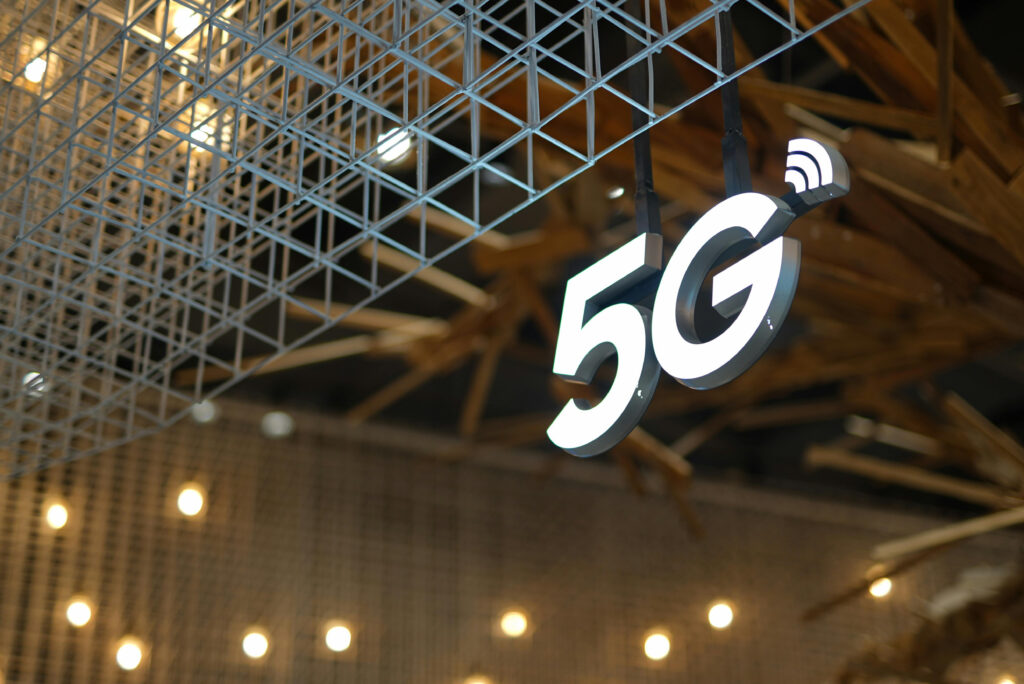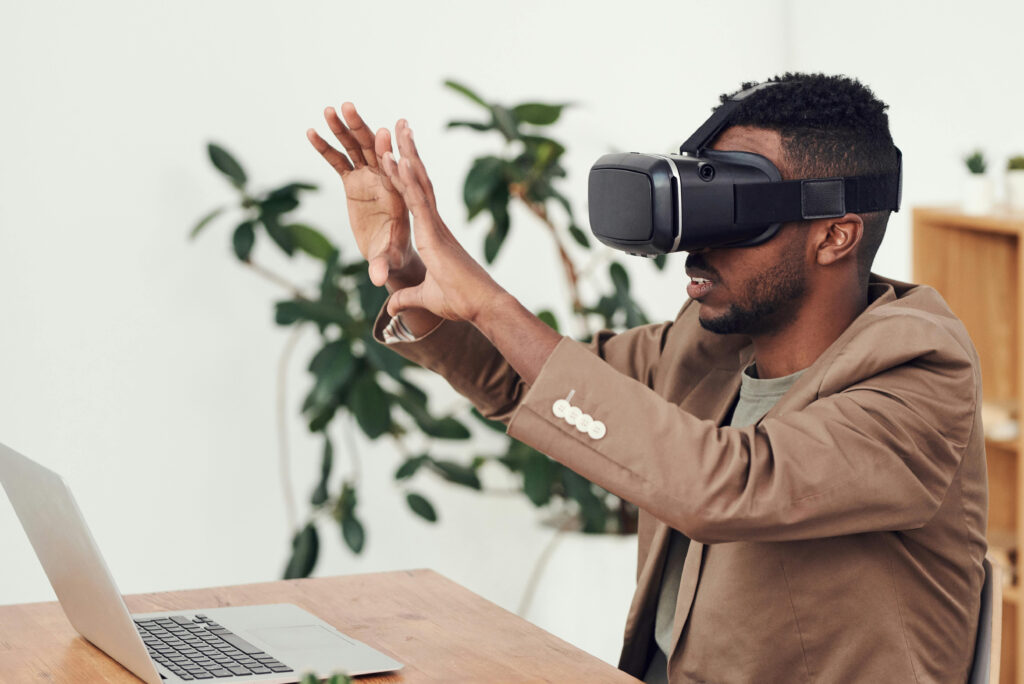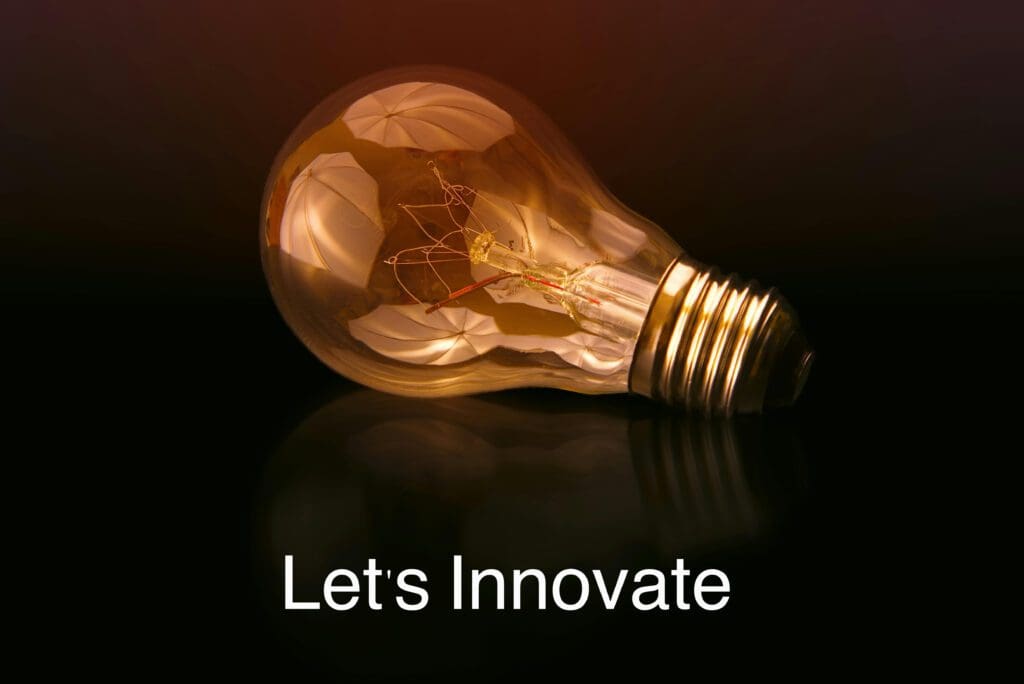The InfraZen 5 Tech Innovations to Look Out For in 2025 – At a Glance…
Click one of the options below to jump right to it or grab a cuppa and join us for the entire post.
- Artificial Intelligence and Machine Learning: The Rise of Cognitive Business
- Quantum Computing: Unlocking Unprecedented Processing Power
- Blockchain and Decentralised Finance (DeFi): Redefining Trust and Transparency
- 5G and the Internet of Things (IoT): Revolutionising Connectivity
- Augmented Reality (AR) and Virtual Reality (VR): Transforming Customer and Employee Experiences
Tech Innovation and Business – A Marriage Made in Digital Heaven

If you have your finger on the pulse of technology then you are futureproofing your business to not just survive, but thrive – both now and moving forward into 2025.
New innovations are not only shaping the way companies operate but are also creating opportunities for enhanced productivity, improved customer experiences, and entirely new business models. Emerging technologies such as artificial intelligence, blockchain, and advanced automation are transforming industries across the board, and their influence will only grow in the coming years.
In this post, we’ll explore five tech innovations that we think are set to change the face of business in 2025 and examine how forward-thinking companies (like yours?) can leverage these breakthroughs to gain a competitive edge.
Artificial Intelligence and Machine Learning: The Rise of Cognitive Business

Artificial intelligence (AI) has been perhaps one of the most disruptive technological innovations over the past decade, but by 2025, its role in business will be even more profound. AI, coupled with machine learning (ML), is evolving beyond basic automation into what is now referred to as cognitive business. This new level of AI is capable of analysing massive amounts of data, making decisions, and learning from those decisions without human intervention (not a good time to be called John Connor).
Key Impacts of AI on Business:
Enhanced Decision-Making: AI will enable businesses to make faster, data-driven decisions by analysing complex data sets in real-time. Companies will rely on AI-driven insights for everything from supply chain management to customer relationship strategies.
Personalised Customer Experiences: Businesses will use AI to offer hyper-personalised experiences for customers, predicting preferences, optimising customer service, and offering tailored products or services based on real-time data.
Automation Beyond Manual Labour: AI-powered systems will go beyond automating repetitive tasks and delve into creative processes, such as content creation, marketing strategy development, and even product design.
If your Business leverages AI and ML then human errors are naturally reduced, processes are optimised, and new product offerings are introduced, potentially more quickly than competitors who rely on traditional methods. The shift toward cognitive business can help you remain agile and efficient in an increasingly complex and fast-paced market.
Quantum Computing: Unlocking Unprecedented Processing Power

Quantum computing, once the subject of futuristic sci-fi, is now becoming a reality, and by 2025, it’s poised to revolutionise industries that rely on solving highly complex problems. Unlike traditional computers that use bits to process information in binary, quantum computers use qubits, which allow them to process vast amounts of information simultaneously.
Key Impacts of Quantum Computing on Business:
Solving Complex Optimisation Problems: Quantum computers can analyse and solve complex problems that would take traditional computers relative years to compute. This capability will be particularly useful in industries like logistics, where optimising delivery routes or supply chain processes with eCommerce can involve millions of variables.
Advancements in Cryptography and Cybersecurity: Quantum computing will have major implications for encryption and cybersecurity. While there are concerns about quantum computers cracking current encryption methods, they will also enable the development of far more secure encryption protocols, offering businesses new ways to protect sensitive data.
Drug Discovery and Material Science: Industries like pharmaceuticals and manufacturing will see significant breakthroughs as quantum computing accelerates research and development, allowing businesses to design new drugs, materials, and products much faster than current capabilities allow.
Though quantum computing is still in its infancy, its potential to solve previously unsolvable problems will give businesses that adopt it early an unmatched competitive advantage in innovation and efficiency.
If you’d like to read a more in-depth report from ey.com on quantum computing for business, you can HERE.
Blockchain and Decentralised Finance (DeFi): Redefining Trust and Transparency

Blockchain technology is no longer just about cryptocurrencies like Bitcoin. By 2025, blockchain will be integrated into various aspects of business operations, offering new levels of trust, transparency, and security. In particular, decentralised finance (DeFi) is expected to become a game-changer for businesses, especially those in the financial sector.
Key Impacts of Blockchain Technology on Business:
Smart Contracts and Automated Transactions: Blockchain enables the creation of smart contracts, which are self-executing contracts with terms directly written into code. These contracts can automatically enforce agreements without the need for intermediaries, reducing costs and increasing transaction speed.
Transparent Supply Chains: Blockchain’s distributed ledger technology allows for transparent, tamper-proof records of goods and transactions across supply chains. This transparency will enable businesses to verify the authenticity of products, reduce fraud, and ensure ethical sourcing.
Access to Global Markets: With DeFi, businesses will be able to access financial services without traditional banking infrastructure. This opens up opportunities for global expansion, especially in regions with limited access to financial institutions. DeFi platforms also reduce transaction costs, making it easier for small and mid-sized businesses to operate internationally.
By integrating blockchain and DeFi into their operations, businesses can gain a competitive edge by offering faster, cheaper, and more secure services, all while fostering greater trust with their customers.
There has been research carried out which also demonstrates ‘critical early-stage business growth’ can be fostered with decentralised coordination. You can read the full article from imperial.ac.uk HERE.
5G and the Internet of Things (IoT): Revolutionising Connectivity

The rollout of 5G technology is set to transform the way businesses operate, particularly when combined with the rapidly expanding Internet of Things (IoT). 5G offers exponentially faster speeds, lower latency, and the ability to connect millions of devices simultaneously, making it the perfect foundation for IoT-enabled business solutions.
Key Impacts of 5G and IoT on Business:
Smart Factories and Automation: With 5G connectivity, IoT devices in manufacturing environments will communicate with each other in real-time, allowing businesses to optimise production processes, reduce downtime, and improve overall efficiency. The concept of “smart factories,” where machines and robots collaborate seamlessly, will become mainstream.
Enhanced Customer Engagement: IoT devices will allow businesses to engage with customers in innovative ways, from connected retail experiences to personalised healthcare solutions. For example, retailers will use IoT sensors to create smart stores where customers can interact with products through their mobile devices, and manufacturers will be able to offer predictive maintenance for their products.
Data-Driven Decision-Making: The vast network of IoT devices will provide businesses with real-time data streams that can be analysed to make informed decisions. This will allow companies to quickly adapt to market changes, optimise their inventory, and better understand customer behaviours.
By embracing 5G and IoT, businesses can drive innovation in product development, customer service, and operational efficiency, setting themselves apart from competitors in an increasingly connected world.
From Technologymagazine.com:
Augmented Reality (AR) and Virtual Reality (VR): Transforming Customer and Employee Experiences

While AR and VR technologies have been around for some time, by 2025, they will be more fully integrated into everyday business practices. These immersive technologies are set to revolutionise both customer experiences and internal processes, offering businesses new ways to engage, train, and innovate.
Key Impacts of AR and VR on Business:
Enhanced Customer Engagement: AR and VR will transform how businesses interact with customers. Retailers will offer virtual try-on experiences for clothing, makeup, and accessories, while estate agents will provide virtual property tours. These technologies will make the buying process more interactive, engaging, and convenient for customers.
Training and Education: Businesses will use AR and VR to deliver more effective employee training. For example, companies in industries like healthcare, manufacturing, and aviation can use virtual environments to train employees on complex procedures or equipment, reducing risk and improving learning outcomes.
Remote Collaboration: As businesses continue to embrace remote work, AR and VR will offer new ways for teams to collaborate. Virtual meetings will move beyond video calls to immersive environments where participants can interact with 3D models, whiteboards, and shared documents in real-time.
For businesses, AR and VR represent an opportunity to enhance both customer satisfaction and employee productivity. Early adopters of these technologies will be able to offer more engaging experiences, driving customer loyalty and improving operational efficiency.
If you’d like to know more about the types of businesses that are embracing virtual reality, check out this post from itpro.com.
Is your Business IT Ready for 2025?
The rapid pace of technological innovation shows no signs of slowing down. By 2025, artificial intelligence, quantum computing, blockchain, 5G, IoT, and AR/VR will redefine what’s possible for businesses across industries. Companies that embrace these technologies will not only optimise their operations but will also be better positioned to create new business models, enter new markets, and meet evolving customer expectations.
However, adopting these technologies requires more than just investment—it demands a strategic approach. As a Business owner, you need to assess which innovations align with your long-term goals, invest in the right talent and infrastructure, and remain agile as technology continues to evolve.
As we move closer to 2025, businesses that are prepared to leverage these groundbreaking innovations will not just survive—they’ll thrive in the new era of digital transformation. Will your business be ready for the future?
Take our Quick Test
Are you embracing technology and using it to save time and generate revenue? Take our free test and see how well your business scores. Click on the image below.


